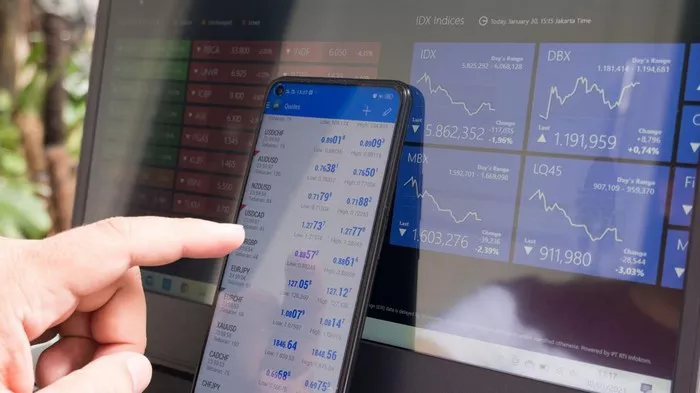Futures are financial contracts that allow traders to buy or sell an underlying asset at a predetermined price on a future date. They serve as essential tools for managing risk and speculating on price movements in various markets. Exchange Traded Futures, in particular, have gained immense popularity due to their standardized nature and liquidity. But who can trade exchange traded futures, and what are the prerequisites?
Understanding Exchange Traded Futures
Before we delve into the qualifications for trading exchange traded futures, it’s crucial to have a solid understanding of what these financial instruments entail. Exchange Traded Futures are standardized contracts that trade on organized exchanges, such as the Chicago Mercantile Exchange (CME) or Eurex. These contracts typically involve commodities, financial instruments, or stock market indices as the underlying assets. Futures provide traders with the opportunity to profit from both rising (long) and falling (short) markets, making them versatile instruments for various trading strategies.
Eligibility for Individuals
Age and Legal Capacity: In most jurisdictions, individuals who are of legal age, usually 18 or 21 years old, are eligible to trade exchange traded futures. Minors do not have the legal capacity to enter into binding contracts, which is a fundamental requirement for futures trading.
Financial Suitability: Futures trading carries inherent risks, including the potential for substantial losses. Therefore, individuals must demonstrate financial suitability, often by meeting minimum income or net worth requirements set by regulatory authorities or brokerage firms.
Education and Knowledge: While there are no formal educational prerequisites, it is highly recommended that individuals seeking to trade exchange traded futures have a solid understanding of financial markets and the specific futures contracts they intend to trade. Many brokerage firms offer educational resources and training programs for aspiring futures traders.
Brokerage Account: To trade exchange traded futures, individuals need to open a futures trading account with a registered futures broker. The broker will facilitate the trading process and ensure compliance with regulatory requirements.
Margin Requirements: Traders must meet margin requirements set by the exchange and their broker. Margin is a deposit that serves as collateral for the trades. It is essential to have sufficient funds in the trading account to meet margin calls.
Eligibility for Entities
Legal Entity Formation: Entities eligible to trade exchange traded futures typically include corporations, partnerships, LLCs, and trusts. The specific requirements may vary by jurisdiction.
Financial Strength: Like individuals, entities must meet financial suitability criteria to engage in futures trading. The entity’s financial strength is evaluated to ensure it can meet its financial obligations arising from futures positions.
Authorized Signatories: The entity must designate authorized signatories who have the legal authority to make trading decisions and enter into futures contracts on its behalf. These individuals are typically listed on the entity’s trading account.
Registered Entity: Depending on the jurisdiction and the exchange, the entity may need to be registered with relevant regulatory authorities and comply with specific reporting and disclosure requirements.
Brokerage Account: Similar to individuals, entities must open a futures trading account with a registered futures broker. The broker will assess the entity’s eligibility and facilitate trading activities.
Risk Management and Trading Experience
Regardless of whether you are an individual or an entity, successful futures trading requires effective risk management and trading experience. It is vital to:
Understand Risk: Futures trading involves leveraging capital, which amplifies both gains and losses. Traders must have a clear understanding of the risks involved and develop risk management strategies to mitigate potential losses.
Develop a Trading Plan: A well-defined trading plan outlines your trading goals, strategies, risk tolerance, and exit strategies. Following a trading plan can help maintain discipline in the face of market volatility.
Practice with Simulated Trading: Novice traders are often advised to practice with simulated or paper trading accounts before risking real capital. This allows them to gain experience and test their strategies without incurring financial losses.
Continuous Learning: Markets evolve, and staying informed about market trends, news, and economic factors is essential. Traders should commit to continuous learning and adapt their strategies accordingly.
Regulatory Compliance
Compliance with regulatory requirements is a fundamental aspect of trading exchange traded futures. Regulatory bodies, such as the U.S. Commodity Futures Trading Commission (CFTC) and the Financial Industry Regulatory Authority (FINRA), oversee futures markets and enforce rules to protect market integrity and participants. Key regulatory considerations include:
Know Your Customer (KYC): Brokers are obligated to verify the identity of their customers and assess their suitability for futures trading. Customers must provide accurate information during the account-opening process.
Anti-Money Laundering (AML) Regulations: Traders and entities must comply with AML regulations, which require the reporting of suspicious activities and the establishment of AML programs.
Market Regulations: Traders must adhere to exchange-specific rules and regulations, including position limits, reporting requirements, and trading hours.
Taxation: Tax implications of futures trading can vary by jurisdiction. Traders and entities should be aware of tax obligations related to their trading activities.
Conclusion
Trading exchange traded futures can be a rewarding endeavor for both individuals and entities, but it requires a thorough understanding of the market, compliance with regulatory requirements, and effective risk management. Whether you’re a seasoned trader or a newcomer to the world of futures, it’s essential to stay informed, continuously update your knowledge, and practice responsible trading. By adhering to eligibility criteria and implementing sound trading practices, you can participate in the dynamic world of exchange traded futures and potentially achieve your financial objectives while managing risk effectively.


